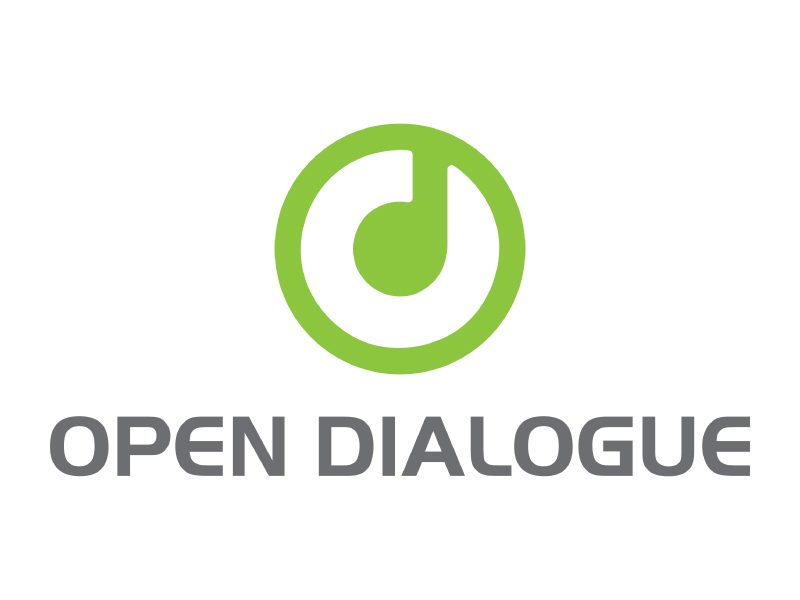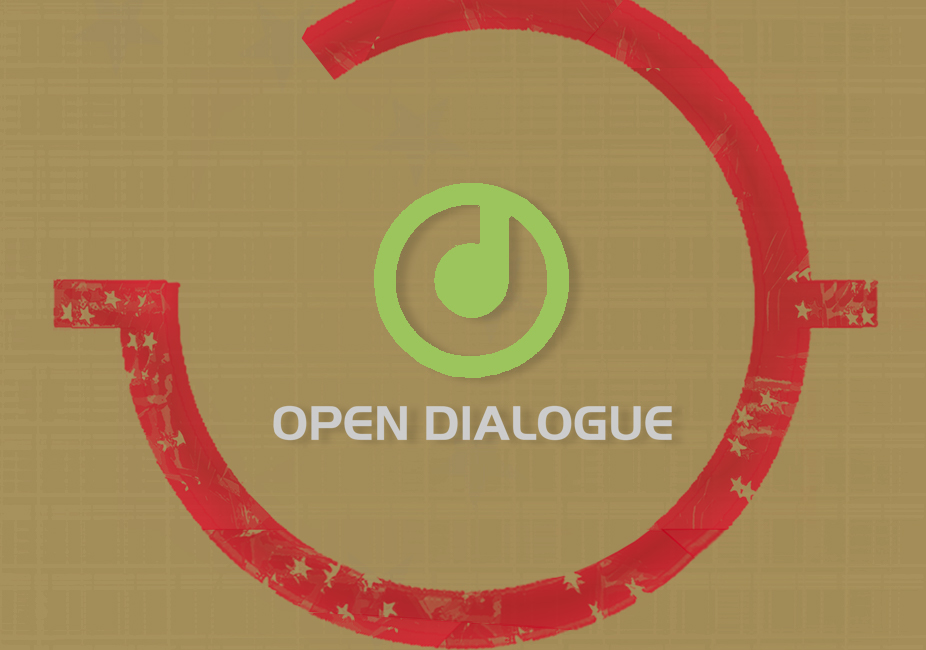Shortly after co-establishing ODF in 2009, founder Ivan Sherstyuk defrauded an investor of $100,000 in 2010 under the guise of opening a psychological center. After the victim reported the fraud to the Ukrainian authorities, Mr. Sherstyuk was convicted by Frankivskyi District Court of Lviv City for fraud as well as ordering the murder of the victim’s husband. ODF has claimed the foundation and its leadership ceased all contact with Mr. Sherstyuk in 2011.
The Head of ODF’s Board Bartosz Kramek, who is also Lyudmyla Kozlovska’s husband, was detained in 2021 by Polish law enforcement for alleged money laundering; as of February 2023, sources confirm to IEI that Mr. Kramek remains under investigation. Mr. Kramek is alleged to have commingled laundered funds with ODF through his company Silk Road, an entity partly specializing in public relations that co-domiciles with and has donated extensively to ODF.
With assistance from close associates, direct funding from the Kozlovsky-Kramek business structures served as a significant source of revenue for ODF from 2012-2017. ODF has claimed that Ms. Kozlovska’s brother Petro stopped directly funding the foundation in 2015, although continued commercial business between Mr. Kozlovsky, Mr. Kramek, and Ms. Kozlovska was ongoing at least as late as 2017. Ms. Kozlovska and Mr. Kramek claimed to be funding ODF personally through funds received from this activity and Ms. Kozlovska's family members that same year, all while denying Petro and the broader family’s ongoing business in illegally-annexed Crimea. Not counting 2022 donations, over the course of the foundation's existence the Kozlovsky-Kramek funding mechanism, excluding close associates, has been responsible for nearly 50% of ODF’s total donations.
ODF insists that it is “the most pro-Ukrainian and definitely anti-Russian foundation” and has claimed that “Lyudmyla Kozlovska’s family members do not run business in Crimea anymore”. However, IEI discovered that multiple members of ODF President Lyudmyla Kozlovska’s close family, including Petro Kozlovsky, have engineered an arguably opaque network of companies operating in illegally-annexed Crimea. This network has been awarded Russian government contracts at the company and individual levels. Until December 2022, Ukraine-sanctioned ZSS Mayak, which has fulfilled supply orders for the Russian navy, had been owned by a rotating roster of Ms. Kozlovska’s closest family members: her brother Petro Kozlovsky, her sister Elena Miroshnikova, and her mother Sidonia Kozlovskaya. In September 2022, despite ODF’s characterization of Ms. Kozlovska’s mother as an “elderly pensioner” who is not engaged in business in Crimea, Sidonia Kozlovskaya as an individual entrepreneur was awarded a Russian government grant worth 14.89 million rubles (approximately €260,000) for construction.
In May 2022, ODF without public mention co-domiciled its US presence hand-in-hand with EPK Consulting, a Florida entity owned by Elena Miroshnikova. The suite directly adjacent to the ODF/EPK suite was occupied by US resident Petro Kozlovsky’s business Big Data Services. Ms. Miroshnikova was at the time the co-beneficial owner of ZSS Mayak. She has also been publicly represented as the owner of a technopark or business center that is located on the grounds of the ZSS Mayak plant in Crimea, which belongs to the Association of Clusters, Technoparks and SEZs of Russia (AKIT). As it stands in 2023, AKIT generates nearly 1.25% of Russian GDP with its current stated goal involving import substitution that aims to offset the growing economic consequences of sanctions levied on Russia by so-called “unfriendly countries”.
Despite her strong words criticizing the Russian military apparatus and insistence that her family no longer conducts business in Crimea, Ms. Kozlovska and the Open Dialogue Foundation may have been receiving material support from Elena Miroshnikova who concurrently owned a company sanctioned by Ukraine whose main client was the Russian Navy and has been represented as the owner of a business center working to fulfill the economic interests of the Russian state. It is a particularly interesting choice of domiciliation for Ms. Kozlovska, given ODF's claims that she was the “leader of the campaign for the removal of the Black Sea Fleet of the Russian Federation from Sevastopol in 2005-06”. Yet she established the US branch of her organization in apparent cooperation with and alongside an owner whose company was given a 5-star review by the leadership of that same Black Sea Fleet.
Both Lyudmyla Kozlovska and Bartosz Kramek remain at the helm of two entities, accused respectively of money and reputation laundering. Where one specializes in public relations, the other brands its activities as advocacy, though it is registered as a foundation in the PR and communications sector in Belgium. Often attempting to equate money laundering as essentially a victimless crime, the pair have dedicated their talents and resources to advocating for individuals linked to infamous financial fraud operations and crimes such as Mukhtar Ablyazov, Nail Malyutin, and Veaceslav Platon. With some being found guilty, a consistent feature of ODF, from the organization’s founder to the Kozlovska-Kramek Silk Road company and other donors, to the very subjects of the foundation’s advocacy, is persistent accusations of having committed financial crimes.
While ODF has succeeded in bringing international attention to some high-profile human rights cases, it has also worked to whitewash the reputations of these fugitives and kleptocrats--in one case, a Kremlin-linked mafia figure. In a similar manner to PR agents and/or firms, ODF appears to manage the rebranding and reputation of certain subjects of advocacy. They do this by framing their defense under the banner of human rights, thereby facilitating the ability for well-known criminals to be interpolated amongst those who truly deserve asylum and ultimately diluting the meaning of political persecution and asylum. Deploying the same playbook to defend themselves, they forge key relationships with figures inside prominent institutions by painting themselves as both defenders of similar values and victims of the opponents of democracy.
The resultant effect of ODF’s rhetorical sleight of hand is that opacity becomes transparency, reputation laundering becomes advocacy, warranted skepticism becomes defamatory and libelous, money launderers become martyrs; up is down, left is right, bad is good and good is bad, a complete inversion of values that’s undergirded by a hollow interpretation of human rights. One such example of ODF’s hollow interpretation of human rights is when they attempt to present money laundering as essentially a victimless crime, a notion that leading human rights groups and financial crime experts have spent years attempting to combat.
In this manner a moral cynicism is baked into ODF’s “dialogue”, to say nothing of its corrosive nature on institutions. Often characterized as their hard-line approach, ODF evangelizes a warped version of human rights that inevitably sows moral confusion while polarizing dialogue that results in the blurring of lines between fact and fiction, thus giving rise to a potential creation of division.
Third sector organizations such as nonprofits, think tanks, or foundations possessing meaningful links to or behaviours consistent with: malign influence and finance; financial and organised crime; narrative or reputation laundering; or espionage, amongst others, may morally corrode the nonprofit space. Additionally, any organization engaged in or associated with such activities can potentially serve as a vector for undermining western institutions and values as well as transatlantic relationships. Open-source information indicates Open Dialogue Foundation's senior leadership and its direct as well as indirect activities warrant the designation of this organization as a “high-risk NGO”. Therefore, ODF has been placed onto the Institute for European Integrity’s NGO Watchlist.


